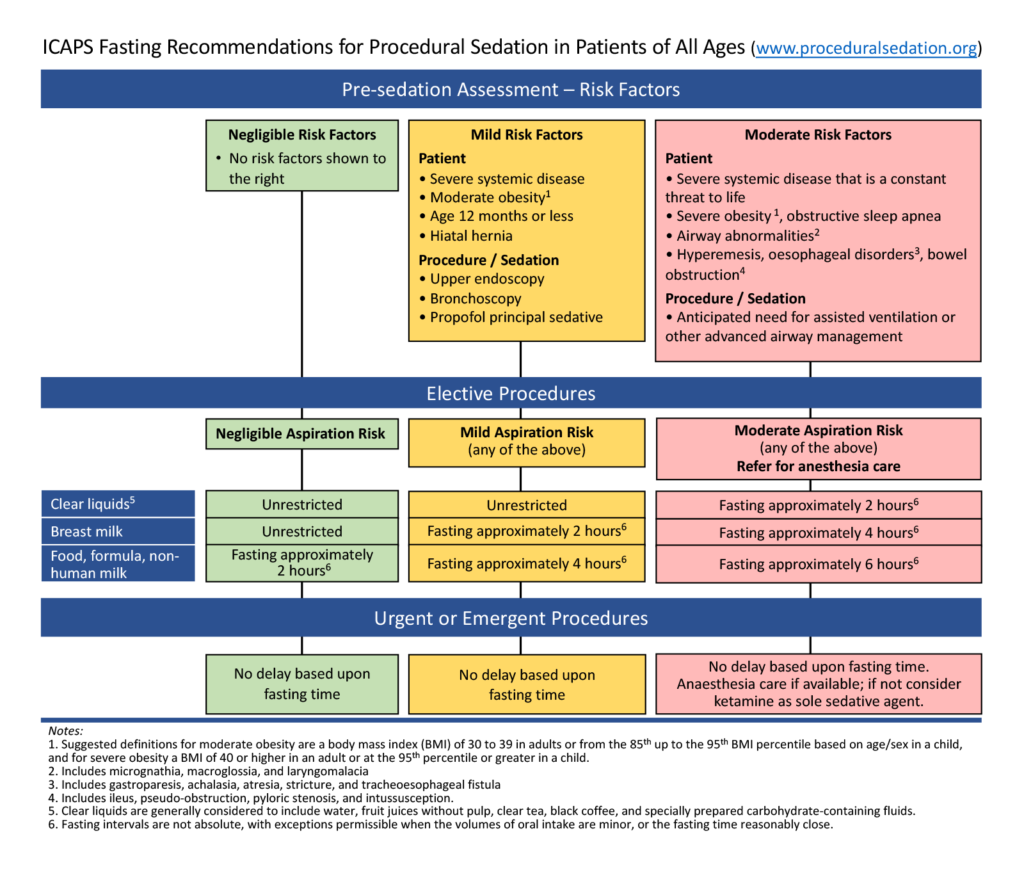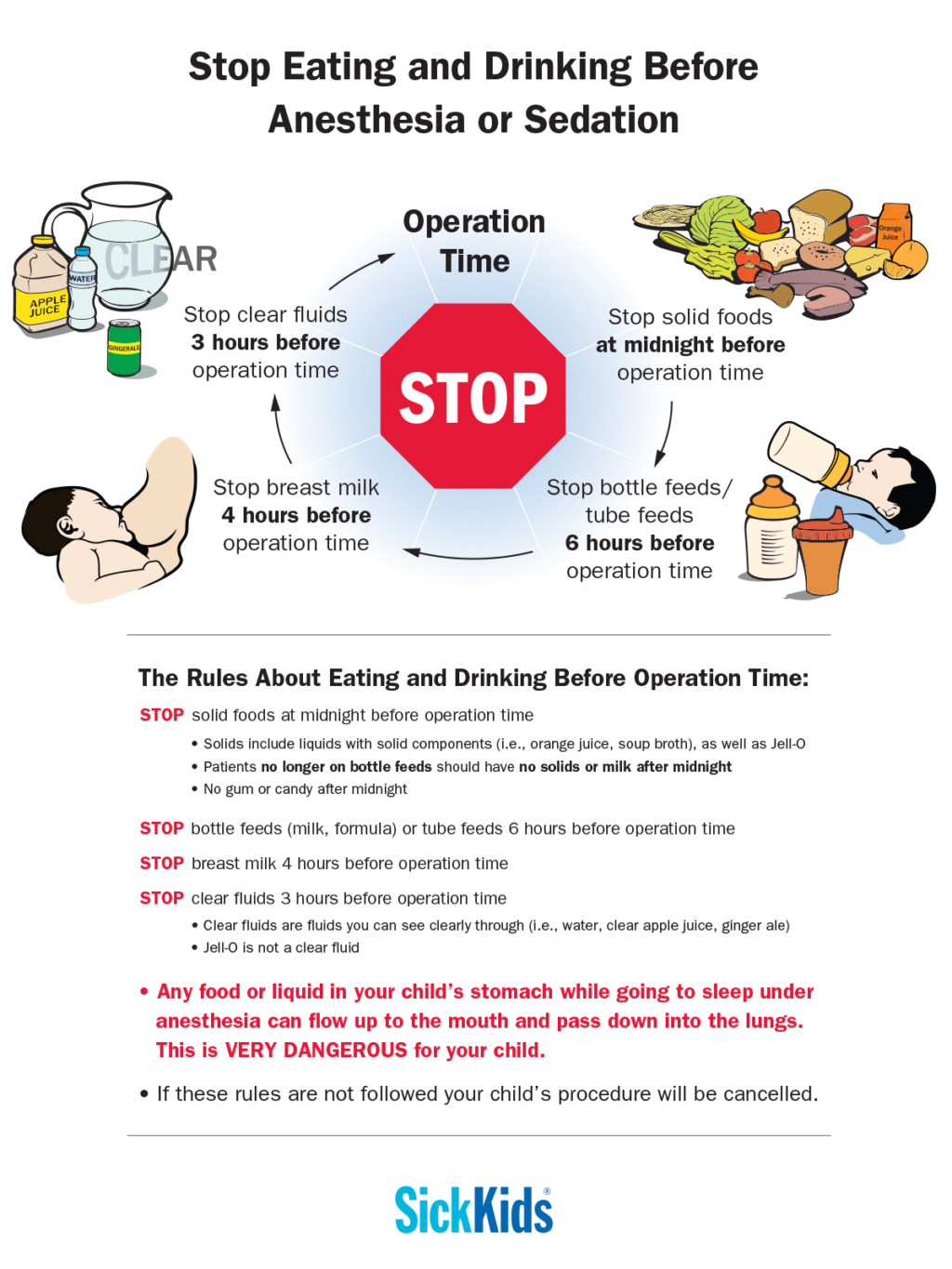Does “NPO” mean looking in the mouth and not seeing any food there?
The Concept
Procedural sedation (PSA) is widely performed to alleviate pain and anxiety in patients who undergo diagnostic and therapeutic procedures. Pulmonary aspiration is a rare but potentially life-threatening complication, and in hopes of mitigating such risk, a period of fasting is typically required prior to these procedures whenever possible. Fasting intervals identical to those recommended for general anesthesia continue to be authoritatively recommended and widely practiced. The image below is an example of current fasting guidelines:
Image Credit: Hospital for Sick Children, Toronto
The Problem
It is not clear that fasting intervals should be equally applicable to all sedation depths, durations, procedure types, and patient conditions or co-morbidities. ED PSA intentionally targets a state in which protective airway reflexes are retained, while general anesthesia targets a state in which they are typically absent. Further, ED sedation procedures are often brief, with far less airway manipulation, and emetogenic inhalational agents are not routinely used, thus, aspiration risk for ED PSA is almost certainly less than that of general anesthesia.
What Has Changed
The multidisciplinary International Committee for the Advancement of Procedural Sedation (ICAPS) has derived the first fasting and aspiration prevention clinical practice guideline specific to ED PSA based upon extensive review of the literature and developed using Delphi methodology and grading of evidence.
The Summary of the Evidence
The evidence is clear that fasting, as currently practiced, substantially exceeds recommended time thresholds and has known adverse consequences, e.g., irritability, dehydration, hypoglycemia. Fasting does not guarantee an empty stomach, and there is no observed association between aspiration and compliance with fasting guidelines. PSA-associated aspiration is rare, with no reports of mortality in the post-1984 literature in healthy adults or in children regardless of underlying medical condition.
Why This Matters
ED practitioners worldwide are concerned with causing harm during PSA. ICAPS provides evidence-based consensus algorithm with graded fasting strategies based on patient risk factors and serves as a resource to practitioners and policy makers who perform and oversee PSA in patients of all ages.
 Download the ICAPS fasting algorithm
Download the ICAPS fasting algorithm
Disclaimer: The views and opinions expressed in this blog post are those of the authors and do not necessarily reflect the official policy or position of the BC Emergency Medicine Network.
COMMENTS (0)
Add public comment…



POST COMMENT
We welcome your contribution! If you are a member, log in here. If not, you can still submit a comment but we just need some information.